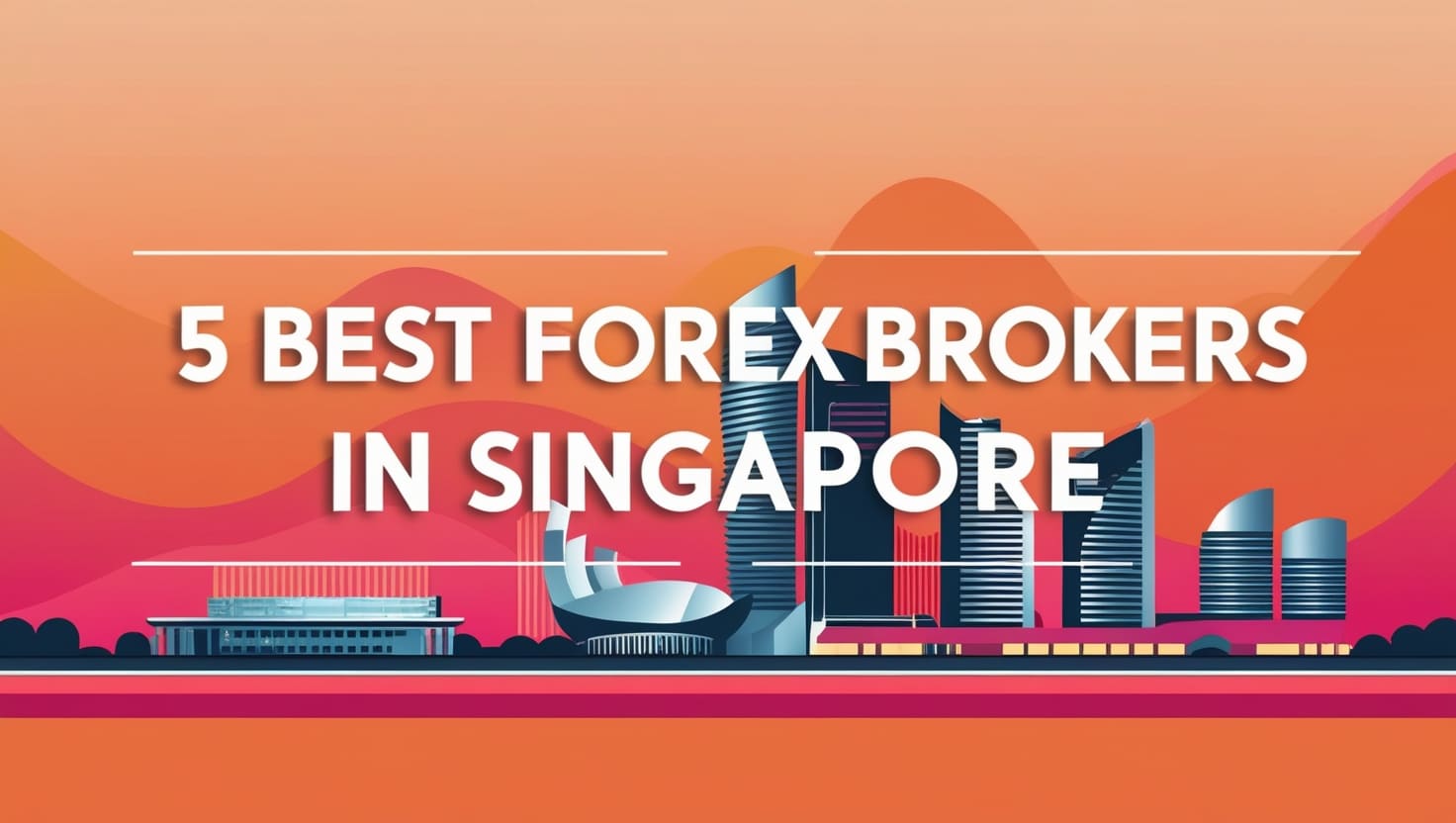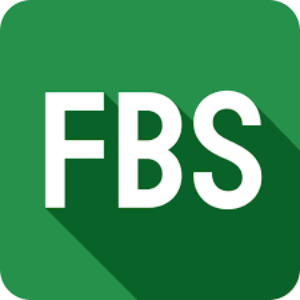
Trading in forex can be exciting, especially when trading in a dynamic market such as Singapore. With numerous forex brokers available, a trader has to know which best meets their needs and provides the most secure trading experience. Singapore’s forex trading environment is legal and regulated to ensure traders can access reliable platforms while enjoying various trading instruments.
As I explore the landscape of forex brokers in Singapore, I find it essential to consider factors like regulation, technology, and support for traders. The Monetary Authority of Singapore (MAS) oversees these brokers, which adds a layer of trust. Understanding these aspects can greatly enhance your trading journey.
Being informed about the choices available and knowing what to expect is crucial. The right forex broker can make a significant difference in your trading success and overall experience.
| Broker | Spreads | Platforms | Min. Deposit | Key Features |
|---|---|---|---|---|
| IG Group MAS Regulated |
From 0.6 pips | IG platform, MT4 | SGD 0 | Extensive education, advanced tools |
| CMC Markets MAS Regulated |
From 0.7 pips | Next Gen, MT4 | SGD 0 | 330+ forex pairs, customizable charts |
| Saxo Markets MAS Licensed |
From 0.6 pips | SaxoTraderGO/PRO | SGD 2,000 | Pro-grade tools, excellent support |
| OANDA MAS Regulated |
From 0.7 pips | MT4, fxTrade | SGD 0 | Transparent pricing, no hidden fees |
| City Index MAS Regulated |
From 0.5 pips | Advanced Trader, MT4 | SGD 150 | Fast execution, extensive research |
Understanding Forex Trading in Singapore

I will discuss key aspects of forex trading in Singapore, focusing on the market’s functions, regulatory framework, and the roles of brokers. This information helps traders navigate the complexities of the forex landscape effectively.
The Forex Market and Its Function
The forex market is a global platform where currencies are traded. It operates 24 hours a day, allowing traders to buy and sell currency pairs. In Singapore, trading focuses primarily on the Singapore dollar and major currencies like the USD and Euro.
Liquidity is a vital feature of the forex market. High trading volumes mean that currencies can be bought and sold quickly without significant price changes. This market functions through different participants, including banks, corporations, and individual traders.
The accessibility of trading platforms, such as MetaTrader 4 and 5, empowers traders. These tools offer various features, such as real-time quotes and automated trading, to enhance the trading experience.
Legal Framework and MAS Regulation
Singapore has a robust regulatory framework for forex trading overseen by the Monetary Authority of Singapore (MAS). The MAS ensures that brokers are trustworthy and adhere to strict guidelines. This regulation fosters a secure trading environment for both individual and institutional traders.
Licensing by MAS is crucial for forex brokers operating in Singapore. They must comply with capital requirements and follow anti-money laundering regulations. These measures protect traders from fraudulent activities and ensure operational transparency.
By establishing a legal framework, the MAS supports the growth of Singapore as a leading financial hub. It helps attract international forex brokers, fostering competition and providing more options for traders in the region.
Roles and Responsibilities of Forex Brokers
Forex brokers serve as intermediaries between traders and the forex market. They provide access to trading platforms, allowing traders to execute trades efficiently. Brokers also offer educational resources to enhance a trader’s knowledge of the forex market.
Client support is another critical responsibility of brokers. They assist traders in understanding market trends and trading strategies, often by providing insights tailored to the local market conditions in Singapore.
In addition, brokers must ensure compliant and transparent trading environments. This includes managing trading costs and providing tools for risk management. By fulfilling these roles, brokers contribute significantly to the overall trading ecosystem in Singapore.
5 Best Forex Brokers in Singapore
Singapore is a major hub for global finance, and forex trading is highly popular among its residents. For traders seeking reliability, competitive trading conditions, and strong regulation, these five brokers stand out as the best forex brokers in Singapore for 2024.
1. IG Group
Overview:
IG Group is a top choice for forex traders in Singapore, known for its comprehensive trading platform, educational resources, and regulatory oversight.
IG Group was established in 1974 and has built a strong reputation as one of the world’s largest CFD and forex providers. Their Singapore operations cater specifically to local market needs while maintaining global standards of service. The broker offers a multi-tiered account structure suitable for both novice and experienced traders, with professional accounts available for qualifying clients. Their customer service is available 24/5 via phone, email, and live chat, with dedicated Mandarin-speaking support staff for local clients.
IG’s educational content includes webinars tailored to Singapore’s trading environment, covering topics from basic forex concepts to advanced trading strategies. Their risk management tools, including guaranteed stops and trailing stops, provide traders with additional protection in volatile markets.
- Regulation: Regulated by the Monetary Authority of Singapore (MAS).
- Spreads: Competitive spreads starting from 0.6 pips on major pairs like EUR/USD.
- Trading Platforms: IG proprietary platform, MetaTrader 4 (MT4), and mobile trading apps.
- Assets: Over 80 forex pairs, indices, commodities, and cryptocurrencies.
- Minimum Deposit: SGD 0 (no minimum for bank transfers).
Why Choose IG Group:
- Extensive educational resources for beginners.
- Strong regulatory compliance with MAS.
- Advanced charting and trading tools.
2. CMC Markets
Overview:
CMC Markets offers a robust trading platform and tight spreads, making it one of the most popular brokers among Singaporean traders.
Founded in 1989, CMC Markets has established itself as a global leader in online trading with a significant presence in Singapore since 2007. The broker is known for its innovative Next Generation platform, which features advanced pattern recognition tools and module-based customization options. CMC Markets provides Singaporean traders with regular market insights specific to Asia-Pacific economies and currency pairs.
The broker offers tiered margin rates based on position size, beneficial for larger volume traders. Their Reuters news feed integration provides real-time market updates directly within the trading platform. CMC Markets also hosts regular trading workshops in Singapore, helping local traders develop their skills and understand market dynamics specific to the region.
- Regulation: Regulated by the MAS.
- Spreads: Spreads starting from 0.7 pips on major pairs.
- Trading Platforms: Next Generation platform and MetaTrader 4 (MT4).
- Assets: 330+ forex pairs, indices, commodities, shares, and cryptocurrencies.
- Minimum Deposit: SGD 0 (no minimum deposit required).
Why Choose CMC Markets:
- Wide range of tradable assets.
- Advanced trading tools and customizable charts.
- Strong reputation and MAS regulation.
3. Saxo Markets
Overview:
Saxo Markets, part of Saxo Bank, is well-known for its multi-asset trading platform and professional-grade tools.
Established in Singapore in 2006, Saxo Markets has positioned itself as a premium broker catering to sophisticated traders and high-net-worth individuals. Their platforms incorporate advanced risk assessment tools and portfolio analysis features that appeal to professional traders. Saxo’s SaxoTraderPRO platform offers institutional-grade execution speeds with average order processing times of under 0.04 seconds.
Saxo Markets provides comprehensive research from their in-house analysts, focusing on Asian markets and global currency trends. Their tiered commission structure rewards higher-volume traders with more favorable rates. The broker also offers specialized services for corporate clients, including treasury management solutions and corporate hedging strategies tailored to Singapore-based businesses with international exposure.
- Regulation: Licensed by the MAS.
- Spreads: Spreads as low as 0.6 pips on major forex pairs.
- Trading Platforms: SaxoTraderGO and SaxoTraderPRO.
- Assets: 180+ forex pairs, stocks, ETFs, options, and futures.
- Minimum Deposit: SGD 2,000.
Why Choose Saxo Markets:
- Professional-grade trading tools and analysis.
- Wide range of financial instruments.
- Excellent customer support and research resources.
4. OANDA
Overview:
OANDA is known for its transparency, reliable execution, and powerful trading platforms, making it a favorite among forex traders in Singapore.
Operating in Singapore since 2007, OANDA has built a reputation for technological innovation and transparency in the forex market. Their proprietary fxTrade platform incorporates historical position ratios and sentiment indicators, providing traders with unique market insights. OANDA offers flexible lot sizes allowing traders to trade exact amounts rather than standardized lots, which enables precise position sizing and risk management.
The broker provides extensive historical exchange rate data going back to 1990, a valuable resource for traders conducting backtesting and research. OANDA’s MarketPulse blog delivers daily analysis specific to Asian trading sessions and Singapore economic developments. Their automated trading capabilities support custom algorithm development and API integration for sophisticated trading strategies.
- Regulation: Regulated by the MAS.
- Spreads: Competitive spreads starting from 0.7 pips on major pairs.
- Trading Platforms: MetaTrader 4 (MT4) and OANDA’s proprietary fxTrade platform.
- Assets: 70+ forex pairs, indices, commodities, and bonds.
- Minimum Deposit: SGD 0 (no minimum deposit requirement).
Why Choose OANDA:
- Transparent pricing with no hidden fees.
- Strong regulatory oversight.
- High-quality market analysis tools.
5. City Index
Overview:
City Index is a trusted name in forex trading, offering competitive spreads and a wide range of markets for Singaporean traders.
Established in 1983 and operating in Singapore for over 15 years, City Index combines decades of market experience with modern trading technology. Their Advanced Trader platform features over 80 technical indicators and drawing tools, with custom indicator creation capabilities for advanced traders. City Index provides Singapore-specific trading webinars and regular market commentary focused on SGD currency pairs and Asian market sessions.
The broker offers negative balance protection for retail clients, ensuring traders cannot lose more than their account balance. Their mobile trading apps include biometric authentication for enhanced security, important for traders managing positions on the go. City Index also provides dedicated relationship managers for premium account holders, offering personalized trading advice and priority service.
- Regulation: Regulated by the MAS.
- Spreads: Spreads starting from 0.5 pips on major pairs like EUR/USD.
- Trading Platforms: Advanced Trader platform, MetaTrader 4 (MT4), and mobile trading apps.
- Assets: 80+ forex pairs, indices, commodities, and cryptocurrencies.
- Minimum Deposit: SGD 150.
Why Choose City Index:
- Competitive spreads and fast execution.
- Extensive research and educational resources.
- Strong regulatory framework and reliable platform.
Evaluating Top Forex Brokers in Singapore

When selecting a forex broker in Singapore, I look closely at several key factors. These include the platforms they offer, trading costs, execution speeds, and customer service quality. A well-rounded evaluation can help traders make informed decisions and enhance their trading experiences.
Criteria for the Best Forex Brokers
The best forex brokers in Singapore should meet specific criteria to ensure a solid trading experience. First, regulation is essential. Brokers must be regulated by the Monetary Authority of Singapore (MAS) to guarantee trust and security.
Next, I consider the trading platforms they offer. Many traders prefer platforms like MetaTrader 4 or MetaTrader 5 for their user-friendly interface and comprehensive tools.
Execution speed is another critical factor—delays can affect trading outcomes. Low trading costs, such as spreads and commissions, also play a significant role. Lower costs mean better profits. Finally, I evaluate customer service quality, as responsive support can make a big difference during trading.
Key Factors in Choosing a Forex Broker

Choosing a forex broker is crucial for traders in Singapore. I consider several important factors, such as regulation, trading costs, and available tools. Each plays a role in ensuring a safe and profitable trading experience.
Importance of Regulation and Compliance
Regulation is vital when selecting a forex broker. In Singapore, brokers must be regulated by the Monetary Authority of Singapore (MAS). This ensures they meet specific standards, protecting traders from fraud and malpractice. A regulated broker must follow strict rules on capital adequacy and customer protection, offering peace of mind.
I always check for licensing information on a broker’s website. If a broker is not regulated, I avoid them, as this situation could lead to significant risks. Regulated brokers often provide a higher level of transparency and must comply with anti-money laundering (AML) measures. This aspect is essential for ensuring that my funds are secure and that I can trade confidently.
Comparing Trading Costs and Fees
Trading costs can significantly impact my profitability, so I analyze various fees before choosing a broker. Common fees include spreads, commissions, and overnight financing rates. A lower spread can lead to cost-effective trading, especially for active traders like me.
Some brokers may offer commission-free trading, but their spreads could be wider. I consider both commission and spread when evaluating overall trading costs. Understanding the broker’s fee structure helps me assess how much I’ll truly pay to execute trades.
Additionally, I look for brokers with transparent fees and no hidden charges. This information helps me avoid surprises and calculate my potential profits accurately. Choosing a broker with low trading costs can make a difference in my trading success.
Assessing Trading Tools and Resources
The trading tools and resources provided by a broker are also significant factors in my decision-making process. I look for brokers that offer advanced trading platforms, such as MetaTrader 4 or 5, which provide essential features like technical analysis, automated trading, and real-time data.
I value educational resources, including webinars, articles, and tutorials that enhance my trading knowledge. Brokers that offer copy trading tools or market analysis can also add considerable value. The more support and tools a broker provides, the more equipped I feel to make informed trading decisions.
In addition, I assess the availability of mobile trading options. A robust mobile app allows me to manage my trades on the go, which is a significant advantage for today’s traders. Overall, I prioritize brokers that offer a comprehensive suite of tools to support my trading strategies.
Range of Trading Instruments Offered

The variety of trading instruments available through forex brokers in Singapore enhances the trading experience for both new and experienced traders. The options include traditional forex pairs, CFDs, cryptocurrencies, and indices. Understanding these offerings can help traders make informed decisions.
Diversity in Forex Pairs and CFDs
Forex brokers in Singapore provide access to a wide range of forex pairs, allowing traders to buy and sell currencies efficiently. Major pairs such as USD/EUR and GBP/USD dominate due to high liquidity.
Additionally, brokers offer Contract for Difference (CFD) trading, which allows traders to speculate on price movements without owning the underlying assets. This can include commodities, stocks, and indices, all from a single trading account. For instance, I can trade CFDs on popular stocks like Apple or on market indices like the S&P 500. This versatility is appealing to those looking for flexibility in their trading strategies.
Expanded Options with Cryptocurrencies and Indices
In recent years, the surge in cryptocurrency trading has led Singapore brokers to expand their offerings significantly. I can trade various cryptocurrencies like Bitcoin and Ethereum alongside traditional assets. This enables me to diversify my portfolio further while taking advantage of the high volatility often seen in crypto markets.
Moreover, brokers provide access to various global indices, including the NASDAQ and DJI. Trading indices allows me to invest in multiple companies at once, which can be a less risky way to engage with the market. Each of these options presents unique opportunities and risks, enabling me to tailor my trading approach based on my personal preferences and market conditions.
Leverage and Margin in Forex Trading

Leverage and margin are critical concepts in forex trading, especially for those starting out in markets like Singapore. Understanding these terms helps you manage risks and maximize potential gains while trading. Here, I will explain leverage ratios and the risks and benefits of trading on margin.
Understanding Leverage Ratios
Leverage allows traders to control a larger position with a smaller amount of capital. In Singapore, brokers often offer leverage ratios up to 1:100 or more, meaning you can trade $100 in the market for every $1 in your account. This gives traders a chance to amplify their profits.
However, high leverage also increases risk. A small market movement can lead to significant gains or losses. It’s crucial to choose a leverage level that matches your risk tolerance. For example, a trader with a higher risk appetite might use 1:100, while a more cautious trader might select 1:20. Many brokers provide tools to help manage risk, like negative balance protection, ensuring your losses don’t exceed your account balance.
Risks and Benefits of Trading on Margin
Trading on margin means borrowing funds from your broker to increase your position size. While this can enhance returns, it also introduces potential risks. For instance, if the market moves against you, your losses can escalate quickly.
The key benefits include increased purchasing power and the ability to diversify investments. By using margin, I can enter multiple positions at once, which spreads risk. However, I must remain aware of margin calls, where my broker demands additional funds if my equity falls below a certain level.
In conclusion, while leverage and margin can enhance profits, they demand careful consideration and risk management to protect my investments in the forex market.
Support and Education for Singaporean Traders
Singaporean traders have access to a variety of support and educational resources that can enhance their trading experience. These resources are essential for both beginners and more experienced traders looking to improve their skills and knowledge in the forex market.
Educational Resources for Beginner Traders
There are numerous educational resources available for beginner traders in Singapore. Many forex brokers, such as OANDA and IG Asia, provide detailed educational materials, including online courses, webinars, and eBooks. These materials cover essential topics like trading strategies, market analysis, and risk management.
Additionally, trading platforms often include demo accounts, allowing new traders to practice without risking real money. This hands-on experience is crucial for building confidence in trading.
Traders can also find local workshops and seminars that the Monetary Authority of Singapore (MAS) may sponsor. These events provide insights directly from industry experts and can help traders make informed decisions.
Quality of Customer Support Services
The quality of customer support services is vital for traders navigating the forex market. Brokers in Singapore typically offer multiple channels for support, including live chat, email, and phone support. This ensures that traders can get assistance whenever they need it.
A key factor is the availability of local support. Many brokers employ support staff who understand the local market and regulations, which can be a considerable advantage for traders.
For example, reputable brokers like Plus500 and CMC Markets provide dedicated customer service teams that are well-versed in common trading issues. This level of support helps to address traders’ concerns promptly and effectively, improving the overall trading experience.
Technology and Trading Platforms
In the world of forex trading, technology plays a crucial role. Trading platforms can significantly impact a trader’s experience, affecting everything from execution speed to user interface. I will discuss the differences between popular trading platforms and the rise of mobile trading.
MetaTrader vs. Proprietary Platforms
MetaTrader 4 (MT4) and MetaTrader 5 (MT5) are widely used trading platforms in the forex market. They offer robust tools for technical analysis, automated trading through Expert Advisors, and a large community of users. MT4 is preferred for its simplicity and extensive resources.
In contrast, proprietary platforms like cTrader or those developed by specific brokers provide unique features. These platforms may offer innovative order types, advanced charting tools, and enhanced user experiences. For instance, TradingView is popular for its superior charting capabilities and social trading features.
Choosing between these platforms depends on personal trading styles and the specific features required. Each platform offers different advantages that can cater to various trading needs.
Mobile Trading and Apps
Mobile trading apps are increasingly popular among forex traders. They allow trading on the go, making it easier to monitor the market anytime and anywhere. Most brokers offer mobile versions of their platforms, enabling users to access charts, news, and trading tools directly from their smartphones.
The rise of mobile trading has led to the development of dedicated apps for Android and iOS. These apps often include features such as real-time alerts, trading signals, and secure payment methods.
Popular mobile apps provide a seamless experience, enhancing trader convenience. With the ability to execute trades quickly and manage positions, mobile trading is essential for active traders. The use of mobile technology is transforming how I and many others approach forex trading.
Account Options and Transaction Methods
When choosing a forex broker in Singapore, I consider the types of trading accounts available and the methods for funding and withdrawing. These factors play a key role in trading success.
Types of Trading Accounts
Forex brokers in Singapore often offer several types of trading accounts. Typically, these accounts include:
- Standard Accounts: These are for traders with moderate experience. They usually require a minimum deposit of around SGD 500 to SGD 1,000.
- Mini Accounts: Ideal for beginners, these accounts may have lower minimum deposits, often starting at SGD 100. They allow for smaller trades.
- Demo Accounts: These accounts let me practice trading without risking real money. They often come with virtual funds and mimic live trading conditions.
Each account type has different features, such as leverage and spreads. Brokers usually provide detailed comparisons to help me choose based on my trading style and risk appetite.
Funding and Withdrawals
Funding my trading account is crucial for starting forex trading. In Singapore, brokers offer various funding methods:
- Bank Transfers: A common method, often free but may take longer to process.
- Credit and Debit Cards: Instant deposits are available, but fees might apply.
- E-wallets: Options like PayPal and Skrill provide fast transactions.
For withdrawals, brokers provide similar methods. Processing times can vary:
- Bank Transfers: Typically take 1-3 business days.
- E-wallets: Usually faster, often within hours.
Most brokers have a minimum withdrawal amount, frequently around SGD 100. Always check for any fees that might cut into my funds.
Trading Safety and Investor Protection
In Singapore, ensuring safety in forex trading is crucial. It’s important for traders and investors to understand how brokers create secure environments and the protections in place for their investments. Key elements include regulatory compliance and specific mechanisms designed to safeguard traders.
Ensuring a Secure Trading Environment
A secure trading environment is vital for anyone involved in forex trading. In Singapore, brokers must comply with strict regulations set by the Monetary Authority of Singapore (MAS). This regulatory oversight helps to maintain a fair and transparent market.
I look for brokers that implement negative balance protection. This means traders cannot lose more money than they have in their accounts. It provides peace of mind, especially in volatile market conditions. Additionally, using reputable platforms like MetaTrader 4 or MetaTrader 5 enhances security, thanks to features like two-factor authentication and encryption.
Protection Mechanisms for Investors
Investor protection is a top priority in Singapore’s forex market. Various mechanisms are designed to shield traders from risks. The Deposit Protection Scheme (DPS) ensures that deposits in participating banks are safe, up to a certain limit.
I also appreciate brokers that offer comprehensive trading resources and educational tools. These help me understand the foreign exchange market better and make informed decisions. Furthermore, the MAS conducts regular reviews and audits of brokers to ensure they meet safety standards. This regulatory compliance adds an extra layer of safety for all traders in Singapore.
Conclusion
In conclusion, trading forex in Singapore offers a highly regulated, secure, and dynamic environment for both new and experienced traders. The robust oversight provided by the Monetary Authority of Singapore (MAS) ensures that forex brokers adhere to stringent standards, thereby safeguarding trader investments and fostering a transparent trading atmosphere. By carefully selecting a forex broker that aligns with personal trading needs and preferences, traders can significantly enhance their trading experience. Key considerations such as regulatory compliance, trading platform options, cost efficiency, and customer support play crucial roles in shaping successful trading outcomes. Ultimately, engaging with a well-regulated and supportive trading environment not only minimizes risks but also maximizes the potential for profitability in the vibrant forex market of Singapore.









